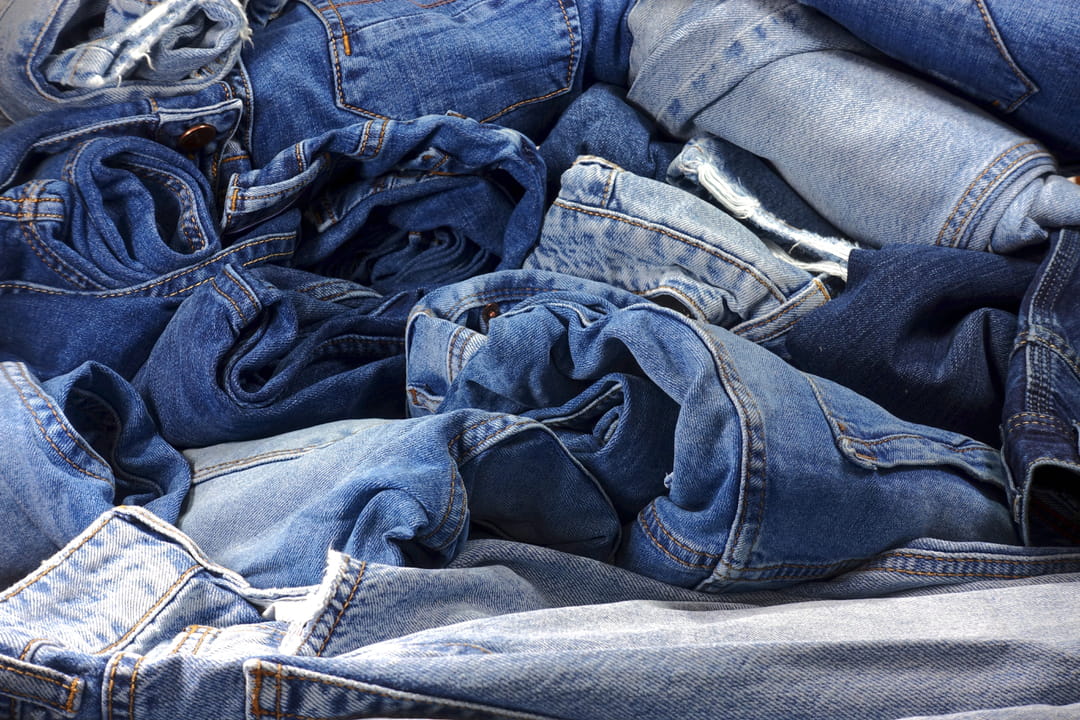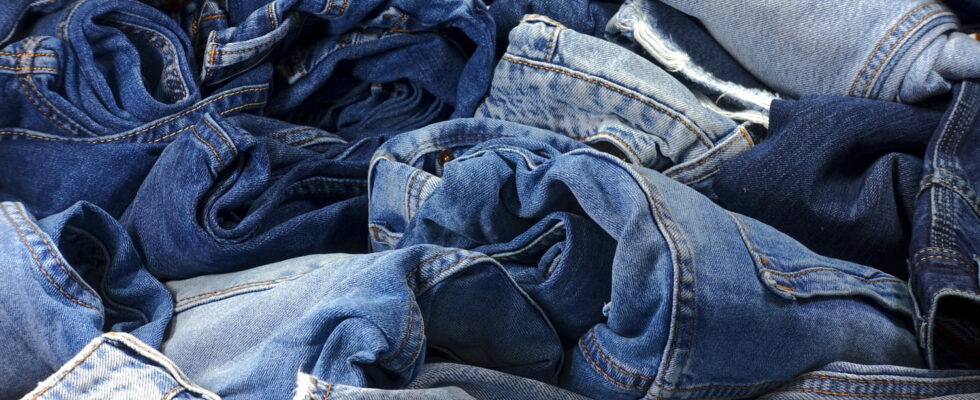Blue jeans as we all know them are set to disappear soon. Researchers have proposed an alternative to replace them.
We all have it in our wardrobe: the essential blue jean. Every year, billions of denim jeans are produced. They are made with indigo dye that gives the characteristic color of these pants. Whether synthetic or natural, indigo does not dissolve in water to become a liquid dye. It must therefore be modified using chemicals to become dye. These blue dyes are therefore aggressive for workers in the sector as well as for the environment, especially near factories. They pollute waterways and soils and have a certain toxicity for humans. Local ecosystems are thus endangered.
Danish researchers have therefore tried to find a more ecological solution. In a study published in Nature Communicationsexperts have proposed an improved dyeing method to eliminate the need for harsh chemicals. In particular, they used indican, a molecule related to indigo, but which does not require chemical treatment. It can be applied to the denim fabric and then take on its blue color through exposure to light or with the help of an enzyme. A color a little different from the current one, tending towards green.

After a phase of testing, the researchers estimated that the use of indican would reduce the environmental impact by 73% to 92% compared to today’s dye. The use of indican could also reduce annual CO emissions.2 of three billion tonnes. “Indican has the potential to have a milder impact on the environment and to be economically competitive with indigo,” the researchers said in the study.
The limits are rather on the means of efficiently producing the indican dye to be able to supply the world market. In addition, this alternative does not solve all the problems since there are also all the other stages of the creation of jeans. It will also be difficult to convince all the major manufacturers to switch to this new method, knowing that the implementation has a certain cost. This could also lead to a possible increase in the price of jeans on sale. Nevertheless, the researchers believe in this project: “Given the growing consumer demand for sustainable clothing, we believe that this represents a commercially viable path”. Other researchers have also developed a “bio-indigo” from the fermentation of sustainable resources, so the alternatives seem to be multiplying.
